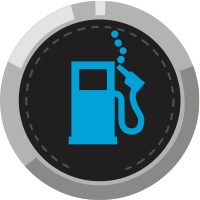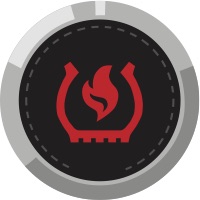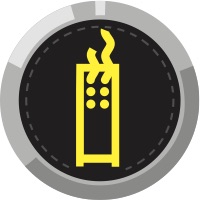What’s That Smell?
September 11, 2018
How to Identify 6 Different Smells in Your Car
Updated August 11, 2020
Have you ever been in your car or truck and a nasty smell smacks you right in the nose? If you don’t immediately feel faint or nauseated, you start wondering what it could be. Is it gasoline? Fast food? Pets? Kids after soccer practice? Mold in the vents?
Here are six common smells in your car that could indicate an issue:
- Gasoline
- Rotten eggs
- Syrup
- Burnt oil
- Burnt rubber
- Locker room
Identifying an odor can help you decide if you need immediate automotive service or if you should just freshen the interior (throw out the fast food). It will also give your mechanic some important information if you do have to take your car to the shop.
1. Gasoline
Gasoline has a very potent smell. A little goes a long way, so if you do smell it, chances are it’s not as bad as you think. For instance, did you spill some gasoline on your jeans while pumping gas? If so, problem solved.
What to do: If you didn’t spill any gas, you could have a leak in your fuel system, which would need to be fixed right away.
Best case scenario: You need to do laundry.
Worst case scenario: You could have an (expensive) emissions system issue or, worse yet, a fuel leak that could cause your vehicle to catch on fire.
2. Rotten Eggs
Naturally, if a car smells like rotten eggs, you might assume someone ate some sketchy takeout. But that’s not always the case. The catalytic converter reduces harmful exhaust emissions from your engine, but if you smell rotten eggs, the cat’s not working right. It’s not converting the sulfur in the gasoline and that’s the smell you’re most likely experiencing.
What to do: Get it checked out. You’ll likely need a new catalytic converter. It’s not an emergency situation, but problems downstream (in the emissions system) can sometimes cause problems upstream (in the engine). The longer you wait, the more expensive the repair could be.
Best Case Scenario: You have time to save up for a new catalytic converter.
Worst Case Scenario: Your converter is so plugged up that when you start the car to drive home from the shop because you “don’t believe in all of that fancy EPA emissions nonsense,” your carpet catches fire as the unburned fuel ignites and torches the underside of your vehicle. But hey, that’s worst case.
3. Syrup
Coolant is often described as sweet smelling, like candy or syrup. (In fact, pets with a sweet tooth may try to lick toxic coolant from your driveway). If your temperature gauge on the dash starts rising, and you smell something super-pungent, stop driving. Without coolant, your engine will overheat, and you don’t want that to happen.
What to do: Visit your nearest shop. Ask about getting fresh coolant in the system. Be sure to have them check for leaks as well!
Best Case Scenario: You have a minor leak and just need a small repair or part replacement.
Worst Case Scenario: Your water pump decided to throw in the towel. The phrase “blown head gasket” begins to haunt your dreams.
4. Burnt Oil
The most common cause of a burnt oil smell is, well… burnt oil. It has an acrid smell to it, and is most pungent when it burns. It’s also visible, leaving a bluish-white trail of smoke. Check for an oil leak. If you’re losing oil and notice a cloud in your wake when you’re driving, check that dipstick. Your engine could be burning oil.
What to do:If you see a leak, call your car guy. It’s best to have your car looked at by an expert.
Best Case Scenario: While changing your own oil, you spilled a little bit. Whoops!
Worst Case Scenario: Your engine is literally running dry because the oil is all burned up. But don’t worry, it’ll stop knocking when it locks up (joking… you should worry if your engine has no oil).
Another cause of a burnt oil smell is transmission fluid. Transmission fluid is pretty hard to smell from the cabin of your car. You will probably spot a leak before you smell the fluid. Transmission fluid, when new or still in good condition, is a cherry-red color. When it’s time to change transmission fluid, it will be dark brown and smell burnt (like burnt oil).
What to do: See burnt oil. It’s probably either oil or transmission fluid. Either way, leave it to the experts.
Best Case Scenario: A seal is starting to wear out or a fitting for a line is loose. Not a big deal if it’s taken care of immediately.
Worst Case Scenario: The seal for the front pump or the output shaft has failed, and you have a mess. If you’re driving, you’re going to destroy more metal than a Transformers movie.
5. Burnt Rubber
Yep, you guessed it: rubber is burning somewhere. Did you recently peel out? If not, the smell could be from any number of hoses or belts. It’s possible one of these is resting on the hot engine part.
What to do: Pop the hood and do a quick inspection, then call your friendly auto expert and report the findings. You’ll probably need to replace a belt or a hose.
Best Case Scenario: A minor repair is needed. Replace the damaged part and you’re back on the road.
Worst Case Scenario: Your belt snapped, none of the accessories are working, coolant is going every which way and your engine is a-cookin’.
6. Locker Room
Moldy, funky odors that intensify when you flip on the A/C are the most obvious smells to work out. Stock up on nasal spray allergy-sufferer, because mold, mildew, and other bacteria can fill the air you breathe, turning your car into a Petri Dish on wheels.
What to do: Get that cabin filter changed. It would also be a good idea to use anti-fungal spray in those vents. When changed regularly, your cabin air filter catches particles and prevents smells. It will also keep your sinuses free and clear.
Best Case Scenario: Your cabin air filter needs changed. Quick and easy.
Worst Case Scenario: You’re now patient zero for a new respiratory illness and the bacteria colonies in your vents are so big they can vote.
Avoid the smelly situation.
Our sense of smell is more important than people think. It’s tied to memory, and one whiff of something can bring back the good times, like cookies at grandma’s house. It can also bring back the not-so-good times, like the smell of oil and sweat when you were at the shop finding out just how much repairs can cost.
Keep your nose at the ready and you can spot problems before they become a hassle. So the next time you’re cruising down the road, and your passenger asks you, “What’s that smell?,” you’ll be ready with an answer. You might just save a few bucks, too.
Be good to your car, and it will be good to you.
Your trusted advisor in automotive maintenance,
Tommy
By Tommy Garcia
BG Technical Sales Engineer
Tommy has 20 years of experience in industrial maintenance. He is a hot rod enthusiast and lover of all things automotive. Before his role as BG Tommy Garcia, is a Technical Sales Engineer for International Trade Operations at BG Products, Inc. Tommy has 20 years of experience in industrial maintenance. He is a hot rod enthusiast and lover of all things automotive. Before serving in his current role at BG, he was the Shop Foreman for the BG Proving Ground.







